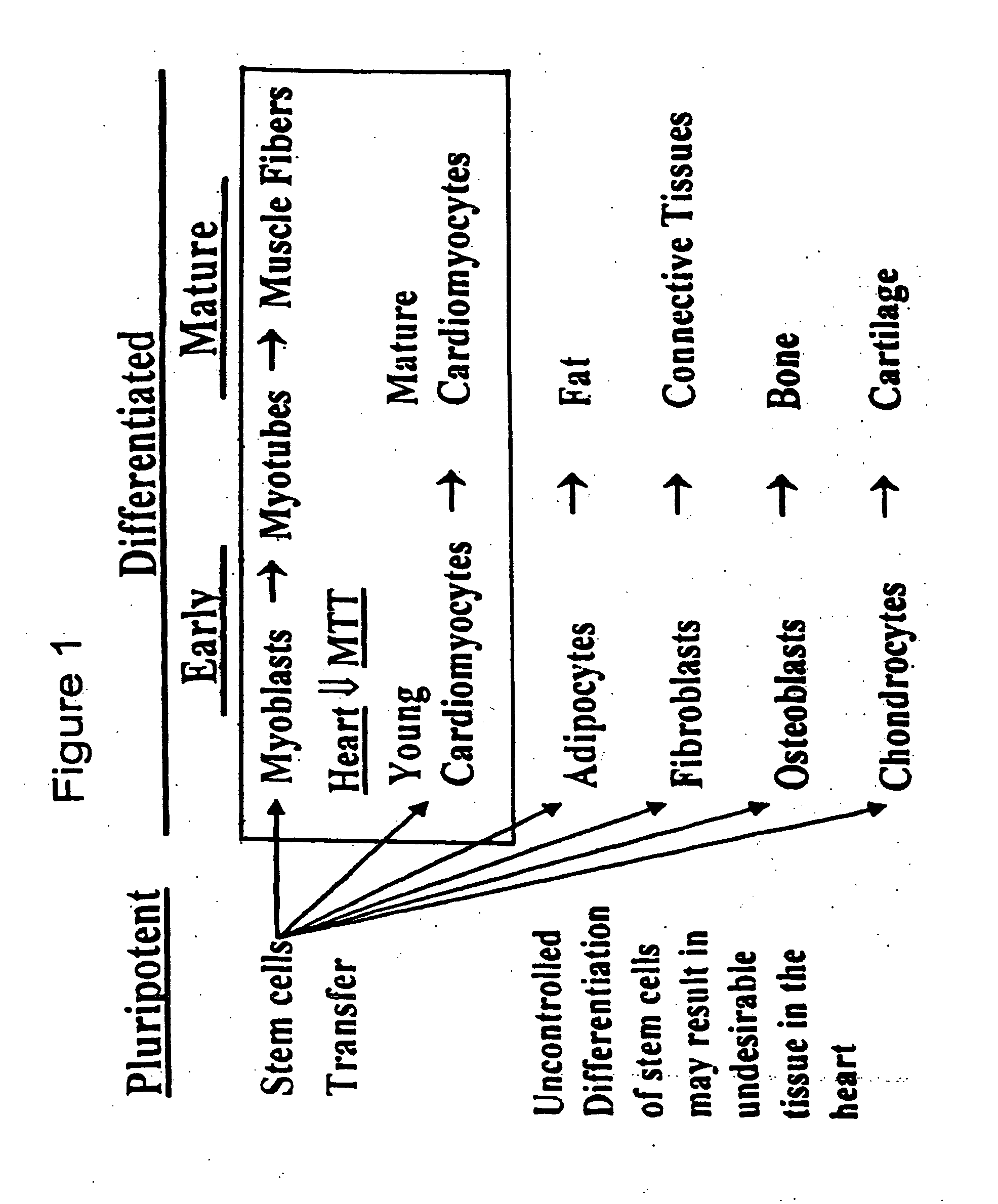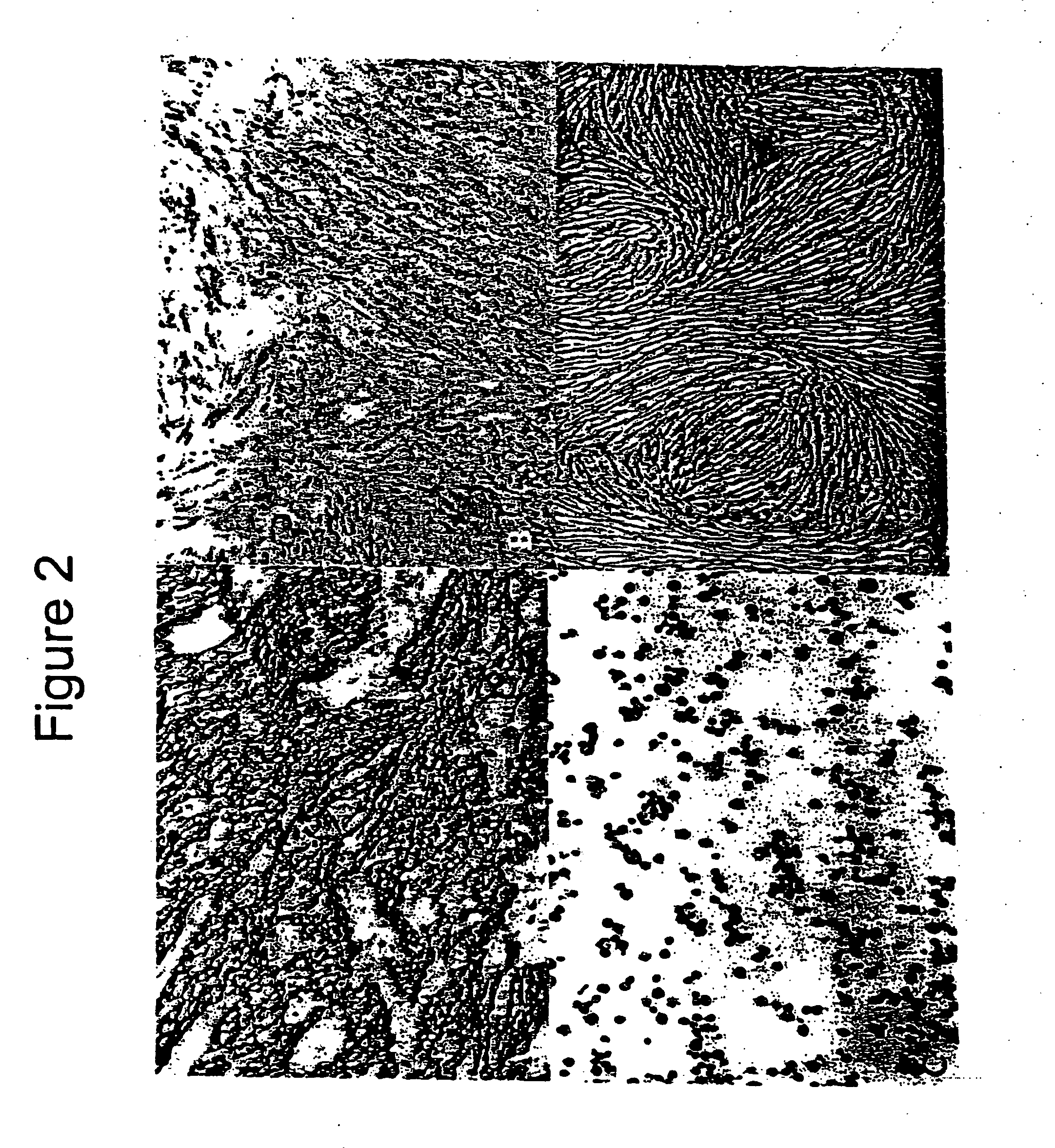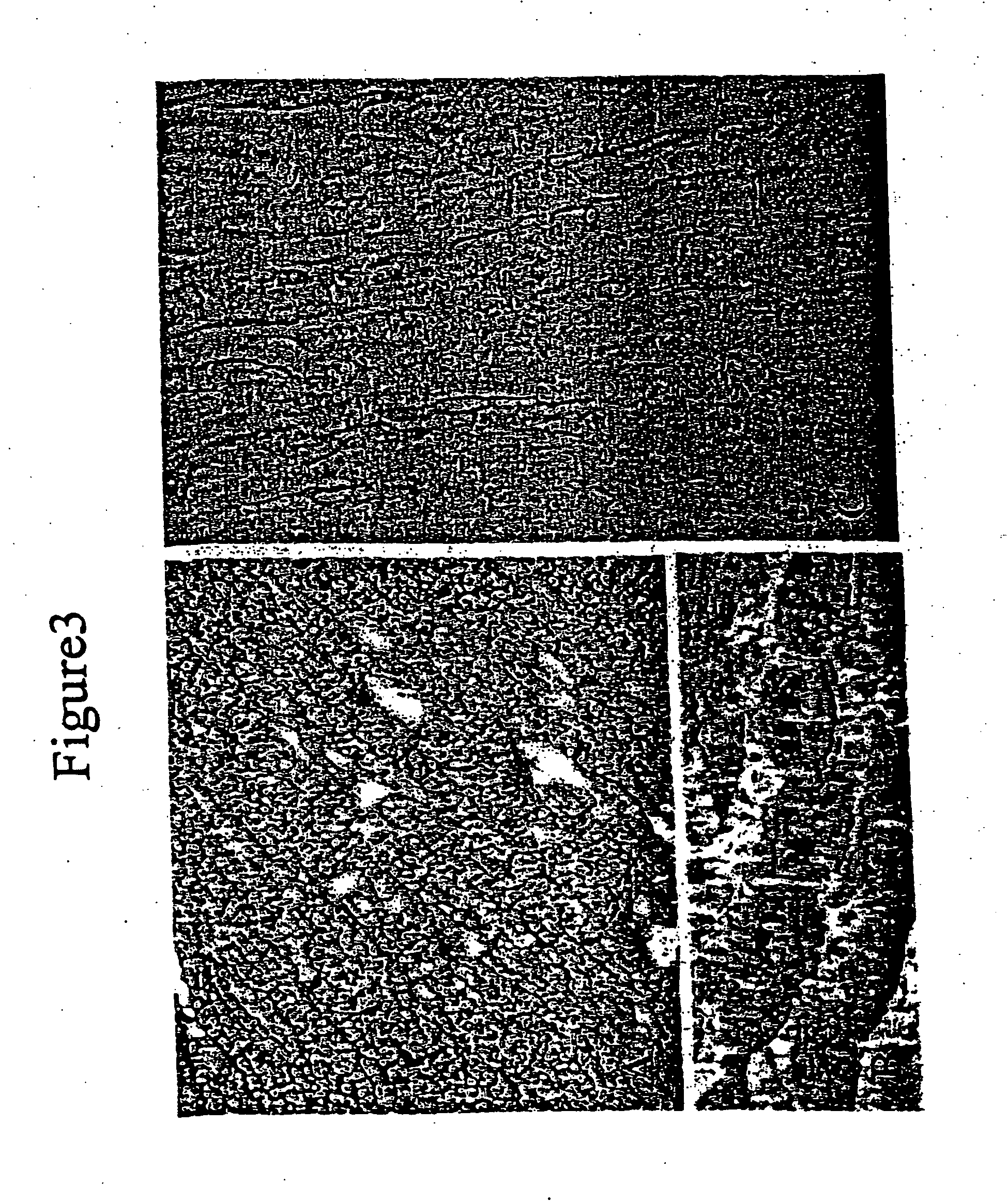Myoblast treatment of diseased or weakened organs
a myoblast and organ technology, applied in the field of cell therapy, can solve the problems of general acceptable and successful results, debilitating and death in humans, and degeneration of heart muscle, and achieve the effects of improving blood flow, improving hair follicle growth, and facilitating binding of muscle cells
- Summary
- Abstract
- Description
- Claims
- Application Information
AI Technical Summary
Benefits of technology
Problems solved by technology
Method used
Image
Examples
example
[0041] This example demonstrates cell therapy of myocardium damage using myogenic cells that transgenically express VEGF165. In this myogenesis example, cultured myoblasts derived from satellite cells of human rectus femoris biopsies were transduced with retroviral vector carrying Lac-Z reporter gene. Porcine heart model of chronic ischemia (n=9; control=3; myoblast implanted=6) was produced by clamping an ameroid ring around the left circumflex coronary artery. Four weeks later, each heart was exposed by left thoracotomy. Twenty injections (0.25 ml each) containing 300 million myoblasts, or 5 ml total volume of basal DMEM as control, were injected into the left ventricle intramyocardially. Left ventricular function was assessed using MIBI-Tc99m SPECT scanning one week before injection to confirm myocardial infarction and at 6 weeks after injection.
[0042] Animals were maintained on cyclosporine at 5 mg / kg body weight from 5 days before, until 6 weeks after cell transplantation. The...
PUM
| Property | Measurement | Unit |
|---|---|---|
| volume | aaaaa | aaaaa |
| total volume | aaaaa | aaaaa |
| total volume | aaaaa | aaaaa |
Abstract
Description
Claims
Application Information
 Login to View More
Login to View More - R&D
- Intellectual Property
- Life Sciences
- Materials
- Tech Scout
- Unparalleled Data Quality
- Higher Quality Content
- 60% Fewer Hallucinations
Browse by: Latest US Patents, China's latest patents, Technical Efficacy Thesaurus, Application Domain, Technology Topic, Popular Technical Reports.
© 2025 PatSnap. All rights reserved.Legal|Privacy policy|Modern Slavery Act Transparency Statement|Sitemap|About US| Contact US: help@patsnap.com



